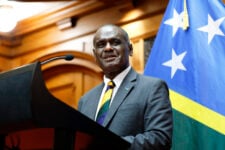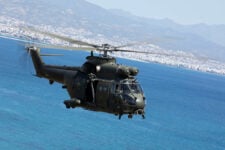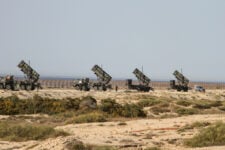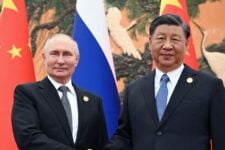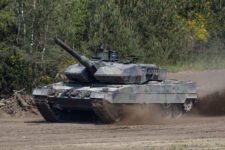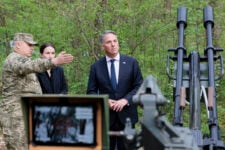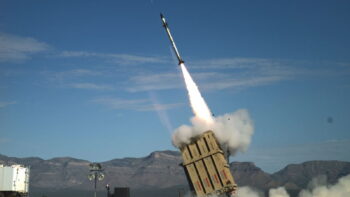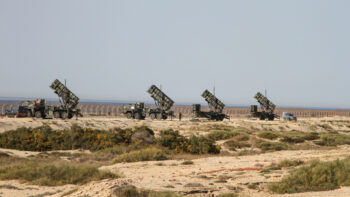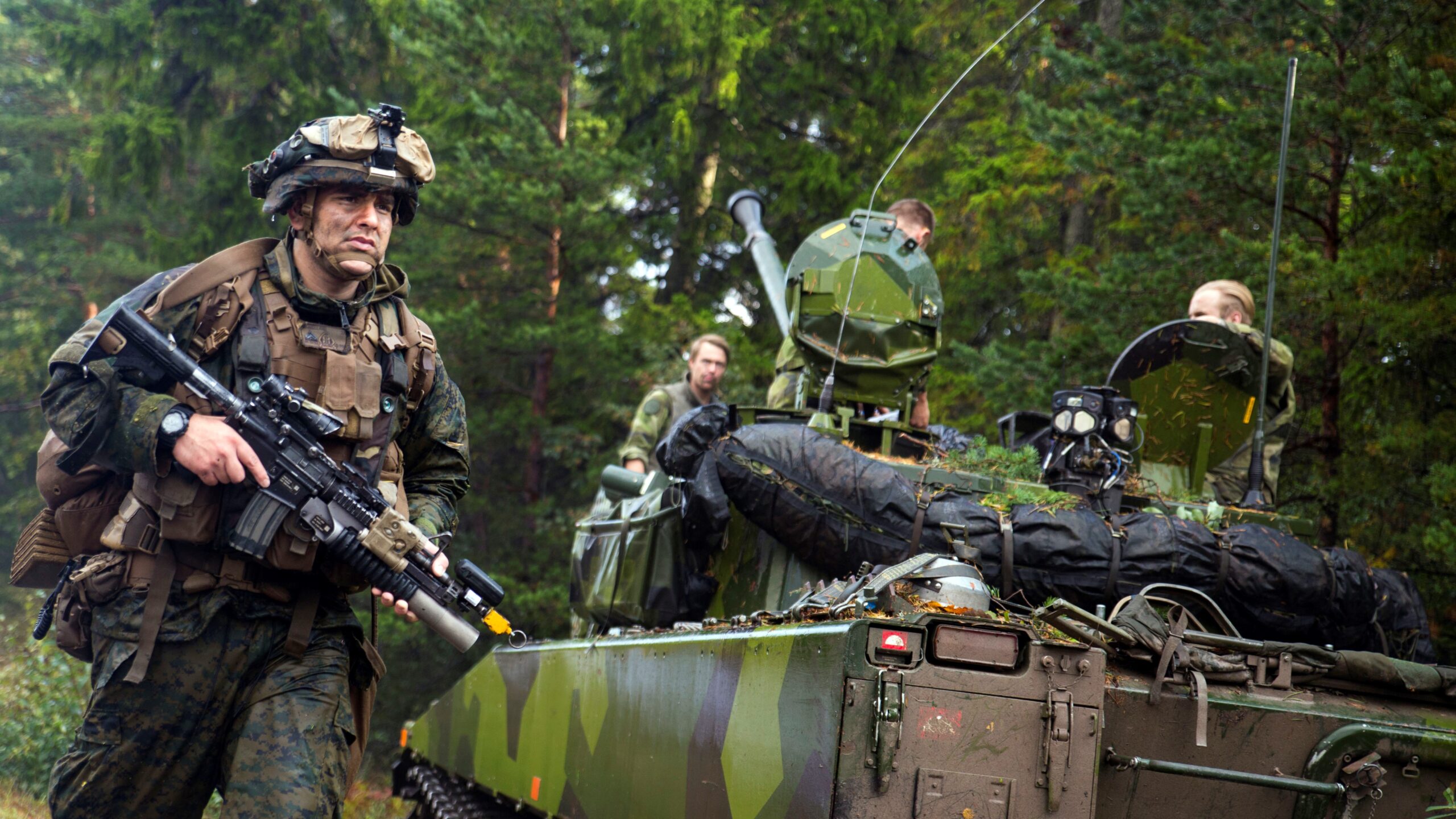
A US Marine walks past a Swedish Strf-90 tracked infantry fighting vehicle during Exercise Aurora 17 in Lärbro, Sweden, Sept. 21, 2017. (US Marines/Marcin Platek)
WASHINGTON: Sweden is in discussions with various alliance members about how to shore up its national security ahead of any Russian counter-moves to a potential NATO application, Sweden’s ambassador to Washington said today.
After years of declining to join the alliance, both Finland and Sweden are expected to announce plans to become its 31st and 32nd members in the coming weeks. The date being eyed by observers is May 13, when Sweden’s government will deliver a report on whether to make the move or not. There have been multiple reports from both nations that the decision is all but final, and that the two nations plans to move in sync for a joint membership.
Speaking at a Washington Post event, Sweden’s ambassador to the US, Karin Olofsdotter, acknowledged that the period between announcing its intent to join NATO and actually being admitted would be “quite dangerous” for Sweden. As a result, she said, Stockholm has been reaching out to see what kind of aid it could line up in case of need.
“We are not asking for any guarantees, in this interim period, if that should happen, because guarantees you can only get as a full member of the alliance,” she said. Instead, “we have asked what other NATO members could do to help us out in this time to raise the threshold” for a Russian attack, something she described as seeking “security assurances” from the alliance members.
RELATED: Finland preparing for Russian ‘consequences’ if it joins NATO: top MoD official
In essence, by asking for “assurances” instead of “guarantees,” Sweden is acknowledging that an Article 5 kind of commitment isn’t on the table — should Russia invade, it will not trigger direct retribution from the NATO nations, something that could prove politically and legally hard for some of the members to agree to. But there are still ways that the NATO states, and most importantly the big players of the US, UK, and Germany, can work now to deter Russia from taking actions.
There may be something in the works already, with Foreign Minister Ann Linde telling a Swedish tv channel on May 4 that “naturally, I’m not going to go into any details, but I feel very sure that now we have an American assurance” of help. No further details were made available from Linde, but the ambassador provided some potential ideas.
Olofsdotter pointed to strong political statements from London and Berlin over recent days as one example, and highlighted disinformation and cyber security as areas where the NATO nations could perhaps help Sweden. Finally, she floated a particularly interesting idea: increasing the number of exercises occurring in Sweden by the NATO nations.
“What one could envisage is, we already have a quite strong exercise program and we have been in NATO exercises for a long time, we’ve been in partnership to NATO,” she said. “So one could envisage that we beef up the exercise program that we already have. One could envisage more presence, maybe naval presence from vessels from NATO countries.”
Unsaid in those comments is that having American, British or other forces in Sweden could work to deter Russia by providing something of a trigger line — attacking the Swedish military would risk killing American forces, for instance, which would in turn increase the chances of Washington committing wholeheartedly to a conflict with Moscow.
RELATED: NATO should begin planning for Finland and Sweden to join the alliance
Notably, there is an ongoing exercise on Finnish soil right now, with US, UK, Estonian and Latvian soldiers teamed with the Finnish military. Given Finland’s reported timeline for a NATO announcement, it’s possible those foreign forces would still be on Finnish soil when the announcement is made, providing de facto protection for Helsinki.
Olofsdotter’s comments came hours after NATO Secretary General Jens Stoltenberg told a Swedish TV station that there is a “very strong obligation” from NATO to protect Sweden if it decides to join, indicating that the alliance would look at bolstering its presence in the Baltic Sea and in neighboring countries.
Looking forward, the ambassador said the most helpful thing the US can do would be for the US Senate to rapidly approve Sweden’s membership request, should it come, in order to “diminish the time that we are in a vulnerable state if we should decide to join.”
Specifically, Olofsdotter said she would hope the Senate would approve membership before the August recess in Washington. “If there are anyone in the Senate watching right now, I can assure you, you will see me and my Finnish colleague walking the halls so the Senate if we decide to join,” she said.
New details emerge of Russia’s potential nuclear space weapon
“The United States has been aware of Russia’s pursuit of this sort of capability dating back years, but only recently have we been able to make a more precise assessment of their progress,” said Mallory Stewart, State Department assistant secretary for the Bureau of Arms Control, Deterrence, and Stability.


